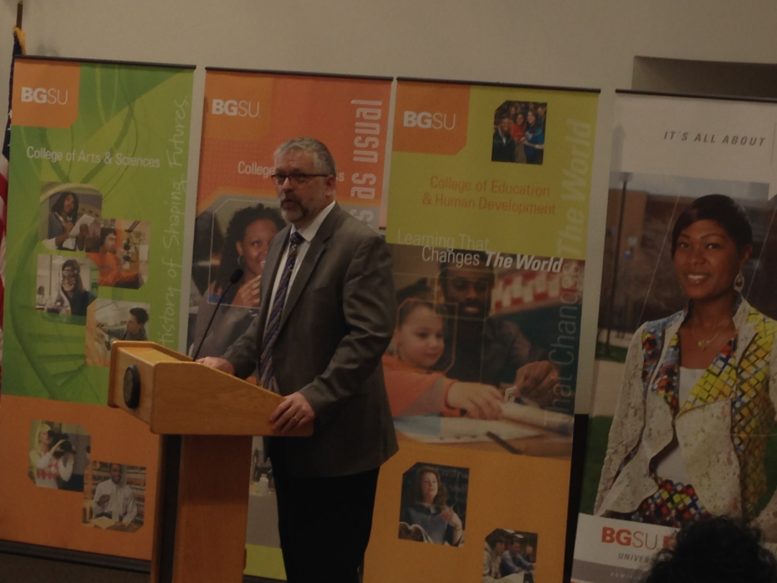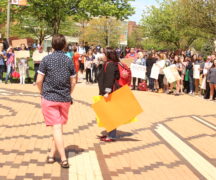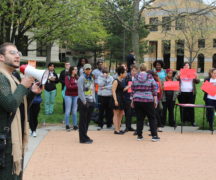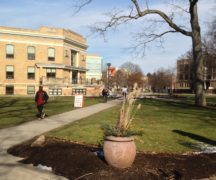John Fischer has been named Bowling Green State University’s acting senior vice president for academic affairs and provost.
The appointment was announced this afternoon by Interim President Rodney Rogers, who had served as provost previous to his appointment as interim president.
The move comes as the university sets up its administrative team in the wake of former President Mary Ellen Mazey’s retirement on Dec. 31.
Fischer had been serving as vice provost for academic affairs since August 2014. According to Rogers’ announcement to the university, Fischer “led the finalization and implementation of the revised General Education Program – BG Perspective.”
Also, “he was vital to centralizing the BG Experience programs in the newly renovated University Hall, and has been instrumental in the Early Alert System and other programs aimed at increasing retention and student engagement. He helped to develop and implement BGSU’s successful eCampus and assisted in the development and implementation of BGSU’s College Credit Plus program as well as our new winter session, which begins in 2019.”
Fischer taught for 14 years in the School of Teaching and Learning and served for three years as associate dean for administration.
He received his degree in elementary education from BGSU and earned a master’s degree in social studies and global education and a doctorate in social studies teacher education from The Ohio State University.
Stepping into the role of acting vice provost for academic affairs will be Dr. Sheila Roberts, associate professor of geology and currently associate dean in the College of Arts and Sciences.
In welcoming students, faculty and staff back to campus, Rogers expressed confidence in “an outstanding team of faculty, staff and administrators” that can continue to build on the successes of recent years.
“We must continue to adapt to meet the needs of our students and our state, while constantly demonstrating the important role of public higher education in creating and sustaining a civil and democratic society” he wrote. “We will do that by defending and protecting the traditional student experience, better serving nontraditional students, and focusing our research and creative efforts to support the public good.”





